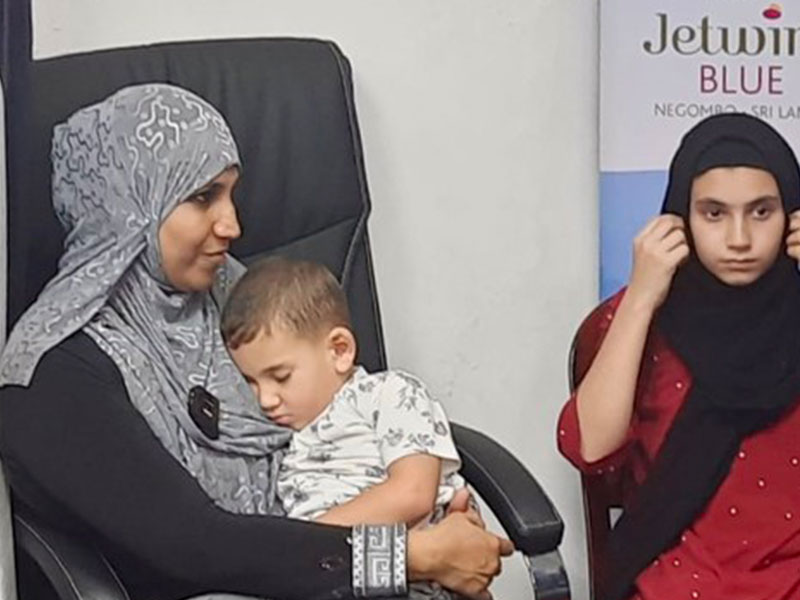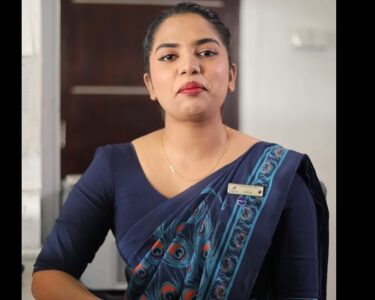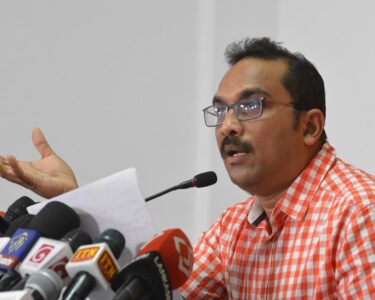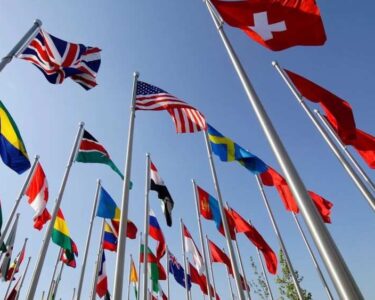Fathima Rikaza and Abdul Lateef’s love story has spanned continents and endured hardship. They met 14 years ago when Abdul, a Palestinian, came to Colombo to study English. After eight years of building a life together in Sri Lanka, they made the difficult decision to visit Abdul’s family in Gaza. It was meant to be a temporary journey, a chance to connect with his roots and introduce their children to their Palestinian heritage.
After living eight years in her native Colombo, they moved with their children to Gaza.
“Israelis turned Palestine into hell for us. We have practically lost everything,” she said
Her husband’s family has lost 50 members since the beginning of Israel’s onslaught, and when Fathima Rikaza left Gaza in November, it was to bring her children to safety and wait to return to her Palestinian husband’s homeland. She can only pray now that they will see their father again.
In October, daily Israeli airstrikes deprived them of any sense of safety and peace.
“Every minute, anything could happen. We have kept an emergency backpack ready. It contained two dresses and a praying mat. And even at night we slept fully dressed, to run away anytime.”
As they were wondering what to do, those with foreign passports were evacuated, and the family had to make a decision.
“Every minute, anything could happen. We have kept an emergency backpack ready. It contained two dresses and a praying mat. And even at night we slept fully dressed, to run away anytime.”
A month later, she and her four children were among the few thousand people with foreign passports who were evacuated from Gaza.
Rikaza’s husband stayed behind with his ailing mother and disabled sister.
“It became difficult to stay there, so my husband asked me to go to the Rafah border and contact our Sri Lankan embassy, and they helped us.”
They now live in Colombo with her sister.
In Sri Lanka, her children can at least sleep, and she will be able to fulfill the promise she gave her husband that she would send them back to school.
Israel’s relentless bombardment of Gaza for the past three months has destroyed not only 70 percent of its homes but also most of the enclave’s educational, healthcare, water, and electrical infrastructure.
At least 22,600 people have been killed by the assault, and nearly 60,000 have been wounded. Most are women and children.
Rikaza is thinking about them all the time.
“I pray for the Palestinians,” she said.
“They are loving and always ready to help. They made me feel at home. Even in those difficult times, they cared more to save me and my children than to protect their own lives.”
She talks to her husband about twice a week, worrying in between if the phone will ring.
“We would have led a happier life with my husband… We are all happy to hear his voice when we get a call from him,” she said.
“Had it not been for the children, I would have gone back to be with my husband and die with him.”







